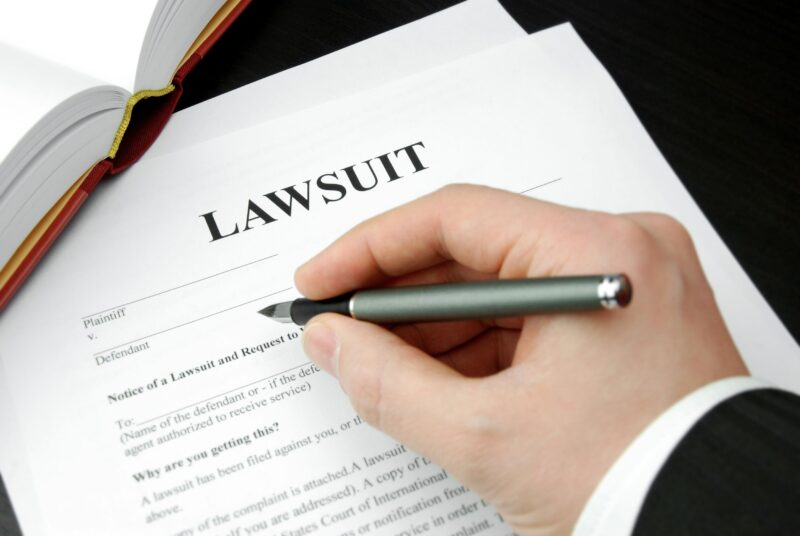 Were you hoping to win a prize? Sorry, in my promotion no one wins, I just say that so you will come into my dealership. Doesn’t that sound awful? Unfortunately, it happens all too often in our industry. Dealers run sweepstakes where everyone is a “winner”. The ad promises $50,000 or a brand new Corvette, but most consumers only receive 2 gold coins or $5 gift card that was never mentioned in the ad. Or worse yet, the consumer receives a “winning” ticket, but all the consumer receives is another scratch off to win that Corvette.
Were you hoping to win a prize? Sorry, in my promotion no one wins, I just say that so you will come into my dealership. Doesn’t that sound awful? Unfortunately, it happens all too often in our industry. Dealers run sweepstakes where everyone is a “winner”. The ad promises $50,000 or a brand new Corvette, but most consumers only receive 2 gold coins or $5 gift card that was never mentioned in the ad. Or worse yet, the consumer receives a “winning” ticket, but all the consumer receives is another scratch off to win that Corvette.
I realize these sweepstakes must work; why else would so many dealers be using them? But, are dealers doing it right? Maybe. A good portion of my practice is dedicated to reviewing direct mailers for state and federal compliance. Those dealers are doing it right. But others, like a dealer in Michigan who settled with the FTC in January for its deceptive sweepstakes, are not.
Why is it so important to do sweepstakes right? With direct mailers especially, it’s easy for regulators to review and find violations. It’s the low hanging fruit. Nothing will upset a consumer more than thinking they won $50,000 and only get a $2 scratch off lottery ticket. Those consumers complain to the regulators. Then, regulators start investigating or the consumers start suing.
That’s when trouble begins. Regulators do not just inquire about one ad, they inquire about every ad you have run over a multi-year period. And guess what? In some of the other ads, you may have made a mistake – charge a doc fee in excess of the state’s cap, included a limited rebate or two, offered $0 down when it wasn’t accurate, and so on. Oh, and that consumer lawsuit – it’s not a class action. Suddenly everything starts unraveling.
This is one of the reasons your dealer attorneys and trade associations preach advertising compliance. Plus, it is an easy and relatively inexpensive area in which to comply. The single best thing anyone can do is know what you don’t know. If your dealership doesn’t regularly conduct sweepstakes, it’s unlikely you know how to comply with your state’s regulations. For example, in Georgia cash prizes are illegal; in North Carolina you cannot inform customers that they will receive a prize if more than 10% of recipients receive a prize; and in several other states it’s illegal to inform consumers they have “won” a prize if more than a specific percentage receive the same prize.
If you do not know a topic, find resources. Your trade associations are constantly putting on educational seminars. The associations are also always asking for ideas for the education seminars. If you want to know more about advertising sweepstakes, leases, rebates or anything else, request a seminar on that specific topic. Some ad agencies have attorneys on retainer to review their pieces. Ask your ad agency if they do. And lastly, nothing beats having a compliance attorney in your rolodex. It is extremely important that the attorney actively practice in the advertising world because states will ‘interpret’ the law differently. Your corporate attorney may be able to tell you the black letter of the law, but advertising compliance attorney will be able to tell you the most recent interpretation of that law.
For sweepstakes specifically, here are a few best practices to stay off regulators and class action attorney’s radar:
- Don’t use a double scratch off. (I.e. mailing a scratch off where the customer “wins” another scratch off which has a chance of winning the “grand” prize).
- Don’t inform a consumer they are a “finalist” or have been “specially selected” unless, the consumer is in fact a finalist or is specially selected.
- Do not compare a used vehicle price to its original MSRP.
- List all the prizes, in each denomination available, in the body of the advertisement, not just the grand prize(s).
- Be able to substantiate all fact based claims in your advertisement.
- Disclose all material terms and conditions of all offers.
- Make disclosures easily readable, without a magnifying glass.
- Make disclosures in close proximity (i.e. same page) as the offer.
- Don’t charge the customer shipping and handling.
Finally, the best rule of thumb for evaluating advertisements for unfair and deceptive sweepstakes is that if you have to think twice about any aspect of the advertisement, remove it. I have occasionally heard dealers and ad agencies call a tactic “sneaky”. If you think anything is “sneaky”, it’s also probably deceptive. The single best tool you already have is your conscience. Use it to evaluate whether or not an offer is deceptive.








